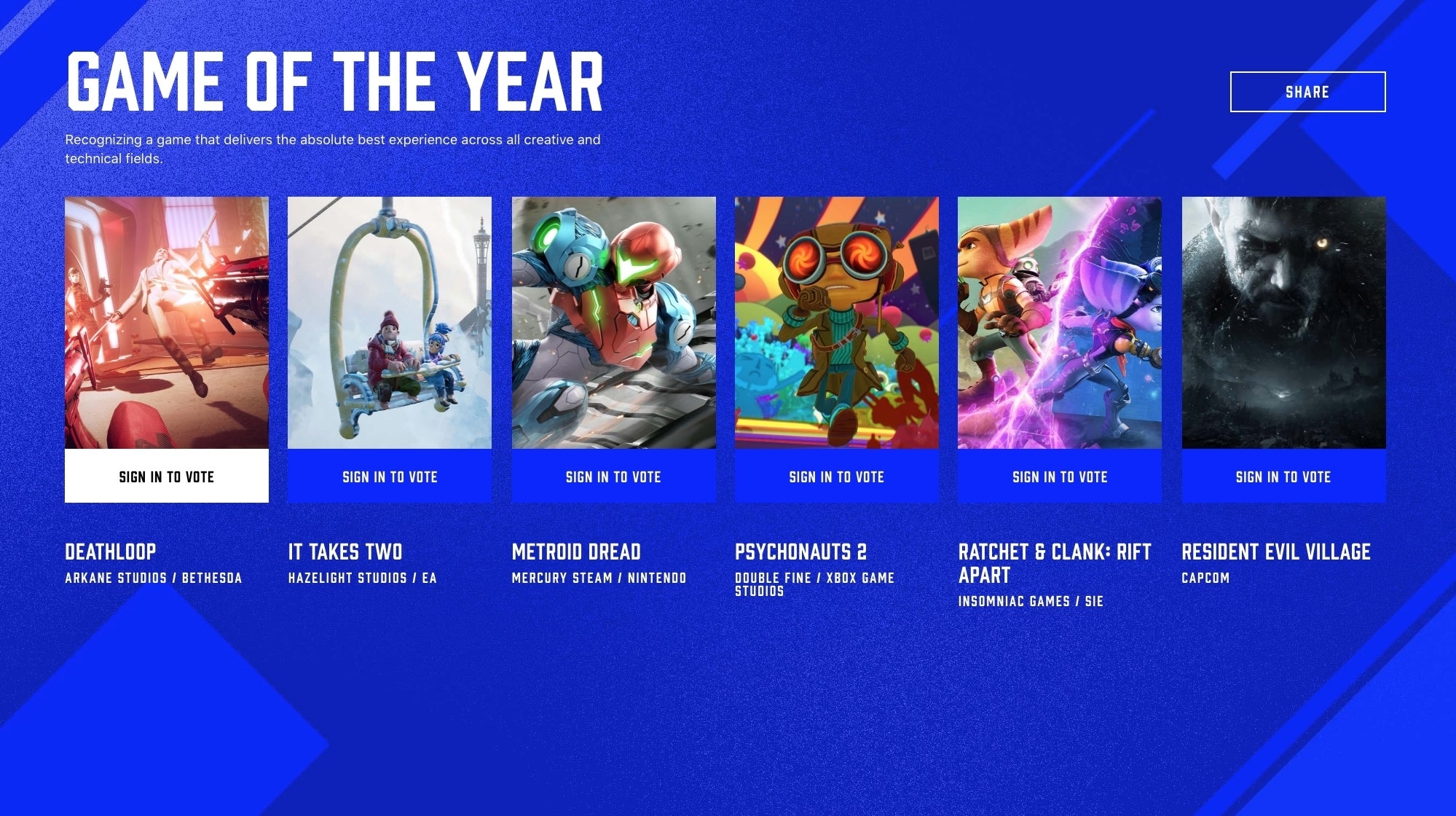It’s that time of year when every games publication rolls out its best-of-the-year lists, and the calendar-topping Game Awards looms large. It’s hardly a phenomenon unique to games; every broadsheet culture section is busy recapping and ranking books and TV shows right now (though awards are different – the film industry, for one, spins out its laborious and intensely political awards season well into the following year).
Personally, I love it. I get a superficial enjoyment from the argument and speculation and positioning that goes with ranking things and selecting winners, however spurious the criteria and comparisons may be – of course I do, I’m only human. But what I really love is the more important and worthwhile process that lies beneath that: taking stock, joining the dots, finding the trends, celebrating great artistry. Pausing the relentless march towards the next thing to take a moment to enjoy what we’ve had.
We’ll make our own contributions to this recap economy, of course – choosing our game of the year over the Christmas break, as well as publishing the results of our reader’s poll, as we always do. We’ve also contributed, along with many other people and publications, to the Game Awards voting. We do it proudly and we enjoy it.
It’s time to acknowledge that there’s a big problem with this process, though, which might not be unique to games, but might be more severe in our artform than any other.
It’s this: the number of individual critics, or people of any sort, who have played enough games to have a good overview of just the year’s most significant releases is vanishingly small. It might even be non-existent. So we pool our resources and our expertise, of course, and do our best to form a collective judgment. The process works well enough in aggregate, but the individual building blocks of it are on shaky ground. Any games writer who doesn’t work full-time on reviews – and even some who do – might struggle to put together a personal top 10, because they might not have played enough games they like to qualify that year.
It’s no great mystery why this happens. Games are very time consuming to play thoroughly, so you can only get through so many. They are also enormously diverse not just in content but in form, and they demand active engagement from the player. This leads to more specialisation among players and critics than in other artforms; you will rarely find a film critic who considers themselves unqualified to write about musicals, for instance, but there are many game writers who would never dare pronounce judgment on a strategy game.
